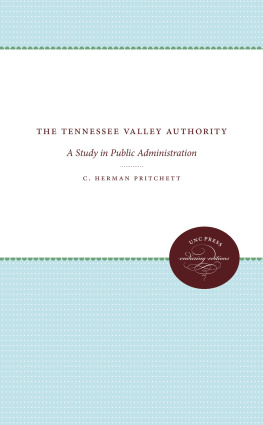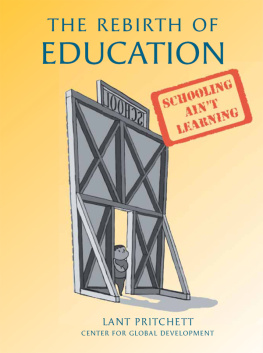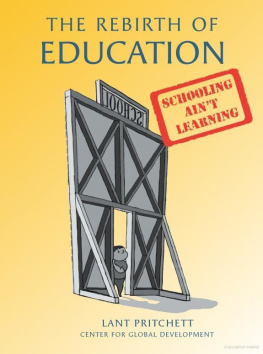1
The
Offensive Traveller
I am an offensive traveller. I do not mean that I arrive in a foreign country in a state of arrogance and start complaining about the beds, the plumbing, the food, the transport, the prices. I do not refuse to drink the water. I do not see bacteria everywhere. I do not say: The country is wonderful, but you can have the people. I do not suspect everyone who speaks a foreign language of being a thief. I do not scream that I cannot get a good steak in Moroccosteak travellers are the hypochondriacs of motiona decent haggis in Naples or an edible chop suey on Ascension Island. I do not complain of the lack of Night Life in English villages or of the absence of thatch in Ohio. One thing, of course, does annoy me: other tourists. Clear the Americans out of Paris; throw the Germans out of Venice; rid Majorca and the Costa Brava of the British. I say that loudly. If I had lived in Canterbury in the Middle Ages I would have said the same about those palfrey loads of pilgrims. To the inhabitants I am as obliging as a Portuguese. By being offensive I mean that I travel, therefore I offend. I represent that ancient enemy of all communities: the stranger. Neapolitan girls have crossed themselves to avert the evil eye at the sight of me. (And of you, too, hypocrite lecteur.) And rightly: We are looking on the private life of another people, a life which is entirely their business, with an eye that, however friendly it may be, is alien. We are seeing people as they do not see themselves. I say we, but I do worse than this. I not only look. I make notes. I write.
It is now forty-two years ago that I wrote my first impressions of a country not my own and began my career as a traveller who causes offence in print. I began to be paid for insulting others. I remember the first occasion. There wasperhaps there still isa local train that runs from Cork to Blarney (significant destination!) and the country people piled in bringing their chickens with them. I mentioned the fact because the journey was a jolly one in a country then torn apart by Civil War. I was accused of bringing the new Irish nation into ridicule. No Irish man or woman ever brought a chicken into a train. If he or she did, a foreigner ought not to mention it. I was playing up the Victorian charm of a nation determined to be Victorian no longer.
I moved on to Spain where I was accused of saying there would shortly be a vacant throne: there was, but in this my offence was without distinction. Everyone was saying it. Who were my friends? Abominable intellectuals like Unamuno, Ortega y Gasset, Barojapeople who were notorious Europeanisers, objectors to bullfighting and kindly disposed to education, parliaments, football and walking in the mountains. I migrated to the United States; my talent really developed. One summer evening I was sitting on the jetty of a small New England town listening to the distant voices of some old fellows jawing and whittling away. I could not hear what they said but on that peaceful evening the sound was like one of the pleasantest sounds in nature: the cawing of returning rooks. I was a fanciful youth. I mentioned the sound in print. Uproar. I had conveyed that New Englanders among all human animals, had not yet evolved the power of speech, forgetting in my smug British way that English speech has been compared to the hissing of geese.
With this incident, I realised that I had been born with a remarkable gift. I exploited it. There were the Swiss, for example; I praised them for their domestic contentment. They objected at once: did I not know that their family life was as awful as that of any other people? Was I insinuating that they lacked a capacity to suffer? A young Swiss came to my office in London to assure me that a Swiss could suffer, if he got half a chance, as much as any man on earth. I praised Scandinavian architecture. These Nordics were indignant that I had not mentioned their high suicide rate. In time, the Germans spoke out. When I said that the Germans loved flowers I was clearly insinuating that they were sissies and one reader got in a nasty dig at me: Dont the British love flowers too?
The mayor of a town in South America said I obviously intended an affront when I said they had just installed traffic lights. My gift was developing fastso fast that I was invited to a discussion on the Welsh character in a small Welsh town and there I made the sort of mistake that comes from over-confidence. I was asked to insult the Welsh, because the meeting had fallen into the doldrums of self-praise. The meeting took place in a small room, indeed one of the company, a learned shepherd, had to lie on the floor at my feet. He stared expectantly, waiting to spring. My speech was brief, even trivial. All I said was that the Welsh were touchy, hot-tempered, hypocritical and given to lying. No more. The shepherd sprangbut not at me. He sprang at the audience and in a beautiful lamenting voice, as if he were declaiming from Jeremiah, he shouted:
What this Englishman has just said is true! We are liars, we are hypocrites...
You observe my error. I learned the lesson and, as a result, reached the peak of my offensive career. It was during the war. I had written a film script showing that the ordinary Englishman and the ordinary Frenchman were natural allies and friends. I presented a flighty and talkative Englishman, keen on beer and girls, and a silent, industrious abstemious Frenchman, dignified and scrupulous. You notice my cunning? I had reversed a sacred myth. The film was banned as anti-Allied propaganda and insulting to both parties. I could go no higher.
As an offender of foreigners I recognise that my place in a long tradition is a humble one. Unlike Shakespeare I have not made fun of foreign accents. I have not made fun of Frogs, Taffys, Wops or Polacks. The nonchalance of Mark Twain and the narkiness of Henry Adams are far beyond me. Mrs. Trollope being rude to Americans, Nathaniel Hawthorne being rude about the British, Bernard Shaw making a laughing-stock of both, are far above my level. I could not equal Bemelmans on Ecuador, though I did get a broadside from a politician in that countrythe eighty volcanoes of the lovely place have, perhaps, contributed to the sensibility of its public men and I have not debunked Spain like that brilliant Italian scholar, Mario Praz in Unromantic Spain. None of these great offenders can, of course, vie with Tobias Smollett whose Travels Through France and Italy is the supreme classic of offence. Smollett had the fine art of excusing a vice by substituting a worse one. Of the French he wrote:
If their acts of generosity are rare, we ought to ascribe that rarity not so much to a deficiency of generous sentiments, as to their vanity and ostentation, which, engrossing all their funds, utterly disable them from exerting the virtues of beneficence.
Taines view of the British seems to have been that they were a kind of brute cattle with addled heads and censorious habits, living in steam. I say nothing of Dr. Johnson and the Scots. He spoke it at a time when the inns of northern England had Scots go home chalked on their walls.
I must not claim too much for my gift for offence. I could not have been born at a luckier moment. In the eighteenth century it was impossible to offend anyone. Today, more people are offendable than at any other time in the history of the world. The number increases. There are two reasons for this, one of them practical: the other harder to define. The first is that more people travel and annoy one another. People whose blood boiled only once in a lifetime can now have it brought to the boil every night of their lives in books, on television and in the cinema. Why are they offended? They are rightly offended by errors of fact. But why are personal descriptions and interpretations offensive to them? I think the tendency of modern society is to make us think there ought to be only one view, that there is a mysterious standard eye or opinion like the standard inch. That very unobjective word called objective is constantly used. This is natural: we, the offended, are fed on the single view of propaganda, advertising and myth.




